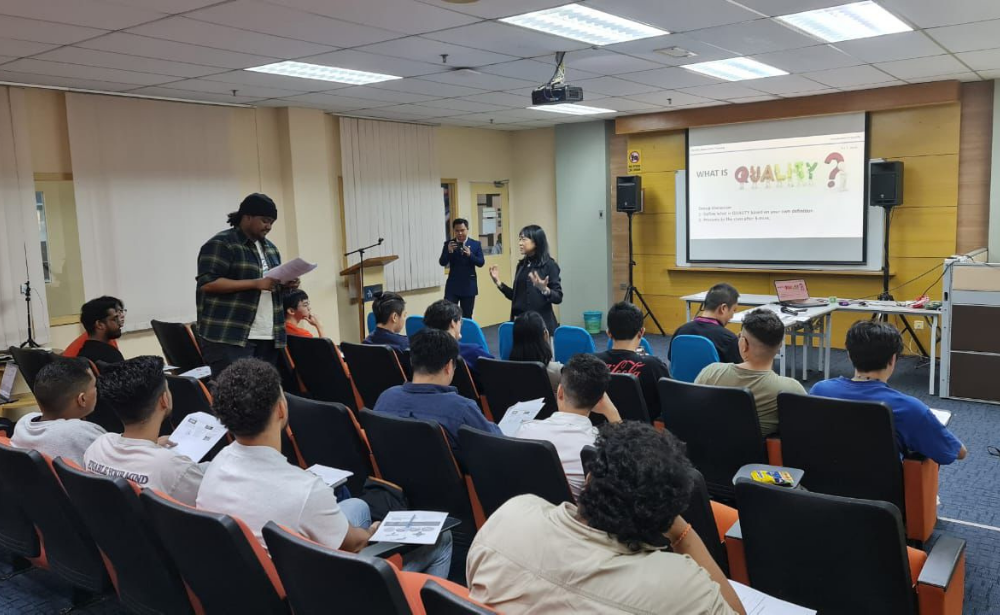世纪大学最近成功举办了一场关于在企业中建立质量文化重要性的活动。这项活动由Ir.Ts.Azri、Ir.Ts.Mathan、Ir.Ts.Mohd Amin 和 Ir.Patrick Teo 博士,以及工业专家 Juliet Chong 的精彩演讲。25名学生和4名讲师参加了此次活动,他们对质量改进及其对组织成功的重要性有了宝贵的认识。
Juliet Chong 是一位成就卓著的专业人士,曾在马来西亚一家领先的企业集团工作了三十多年,并在丰隆雅马哈工作过很长时间。她强调了质量文化在提高客户满意度、产品可靠性和运营效率方面的关键作用。根据 Grand View Research 的报告,2019 年全球质量管理软件市场规模为 82.5 亿美元,预计从 2020 年到 2027 年将以 9.7% 的复合年增长率(CAGR)增长,凸显出各行业对质量管理的日益重视。
朱丽叶说明了强大的质量文化如何提高客户满意度,因为产品或服务始终达到或超过预期。这将带来更高的客户忠诚度、回头客和积极的口碑推荐。她强调,以质量为中心的组织可以大大减少浪费,优化资源利用,从而提高运营效率,降低成本。
此次活动还阐明了员工参与质量改进工作的益处。获得授权的员工更有可能为自己的工作感到自豪,从而提高生产率,降低离职率。朱丽叶分享说,根据盖洛普公司的一项研究,员工参与度高的公司在 202% 年的业绩要优于员工参与度低的公司,这强调了员工参与对组织成功的深远影响。
此外,朱丽叶还讨论了注重质量如何促进持续学习和创新。这种思维方式鼓励员工寻求新的方法来改进流程、产品或服务,从而为企业带来竞争优势。据《哈佛商业评论》报道,创新型公司的增长率比非创新型公司高出 16%,这凸显了质量文化在推动业务增长方面的重要性。
牢固的供应商关系是质量文化的另一个优势。通过促进与供应商的合作和信任,企业可以确保提供高质量的投入,从而提高整个供应链的可靠性。朱丽叶指出,根据德勤公司的数据,与供应商关系稳固的公司,供应链中断的次数要少 38%。
活动最后讨论了遵守法规和降低风险的问题。遵守质量标准和法规不仅能降低罚款和处罚的风险,还能提高企业的声誉。朱丽叶指出,根据注册舞弊审查师协会的报告,拥有强大合规计划的公司的舞弊事件减少了 64%。
世纪大学对追求卓越的承诺在这项活动中表现得淋漓尽致,为学生们提供了有关质量管理的尖端知识与实践见解。通过举办这些内容丰富的课程,世纪确保学生们做好充分的准备,以满足行业需求并在未来的职业生涯中脱颖而出。这项活动展现了世纪在培育质量与持续改善文化上的奉献,让学生们站在工业创新的最前线。


